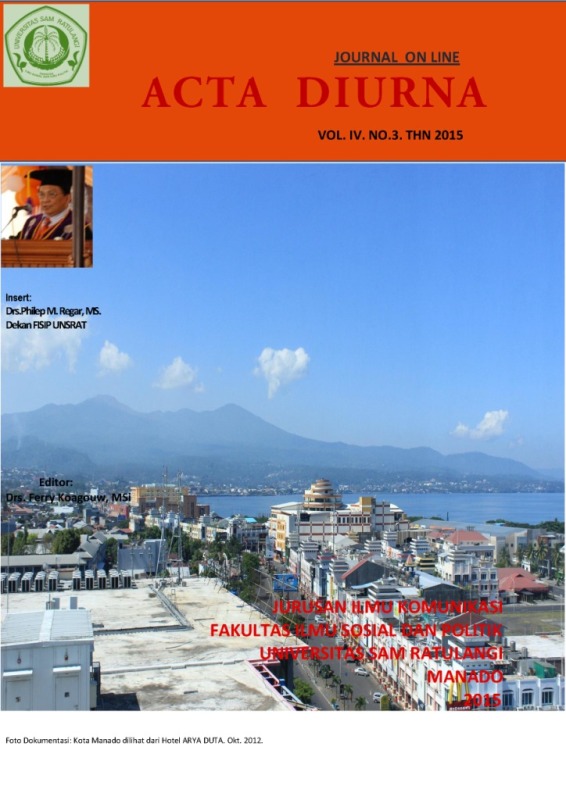FUNGSI BANJAR ADAT DALAM KEHIDUPAN MASYARAKAT ETNIS BALI DI DESA WERDHI AGUNG, KECAMATAN DUMOGA TENGAH, KABUPATEN BOLAANG MONGONDOW PROVINSI SULAWESI UTARA
Abstract
The existence of traditional institutions in present time is so difficult to find even marginalized due to the globalization. Banjar adat as a religious social institutions is one of the builders factor of the civilization of the world, so it is interesting to study about the history of the emergence, ideology, objectives, functions and role in society. Therefore, this study was conducted to identify banjar adat function in the life of ethnic Bali community in Werdhi Agung village.This is a field research that uses qualitative methods. The source of data is derived from the primary data and secondary data. The primary data taken from interviews, photographs, and other documentation. Secondary data was taken from decisions or result of meetings and unwritten rules in banjar adat. There’re 23 informants who were involved and selected by using the snowball technique, that determine informant who initially small amount (as key informants), and then these informants were asked to choose another informant deemed to know and understand the problems. The data was collected through by observation, interviews, and document research. And then the data were analyzed through the stages of data reduction, data presentation, drawing conclusions and verification.
In the field of religion, banjar adat being into institutions that regulate and organize the ceremony/rituals in the village level. In the field of customs, arts and culture, banjar adat function very apparent when there are traditional activities such as marriage and death. Banjar adat also be a preservation container of Balinesse art and culture. In the economic field, banjar adat became a partner of government to improve the quality of agricultural products through the counseling by the related government. Banjar adat also took responsibility for the security of people in the Werdhi Agung by empowering Pecalang which selected from each banjar adat. Banjar adat also considered effective enough to be involved in political activities such as campaigns and elections.
Based on these results of the research, it can be concluded that the banjar adat function in the life of ethnic Bali community in the Werdhi Agung village can be identified in three main functions namely: (a) function in the field of religion; (b) function in the field of customs, social and cultural; and (c) function in the economic, security, and politics/government. The existence of banjar adat as a traditional organization which still survive and resist in the midst of modernization needs appreciation and special attention from the government even in the form of both material and immaterial support, because after all that sustainable local genious is an invaluable asset of the nation.
Downloads
How to Cite
Noviasi, N. K. P., Waleleng, G. J., & Tampi, J. R. (2015). FUNGSI BANJAR ADAT DALAM KEHIDUPAN MASYARAKAT ETNIS BALI DI DESA WERDHI AGUNG, KECAMATAN DUMOGA TENGAH, KABUPATEN BOLAANG MONGONDOW PROVINSI SULAWESI UTARA. ACTA DIURNA KOMUNIKASI, 4(3). Retrieved from https://ejournal.unsrat.ac.id/v3/index.php/actadiurnakomunikasi/article/view/8289
Issue
Section
Articles

